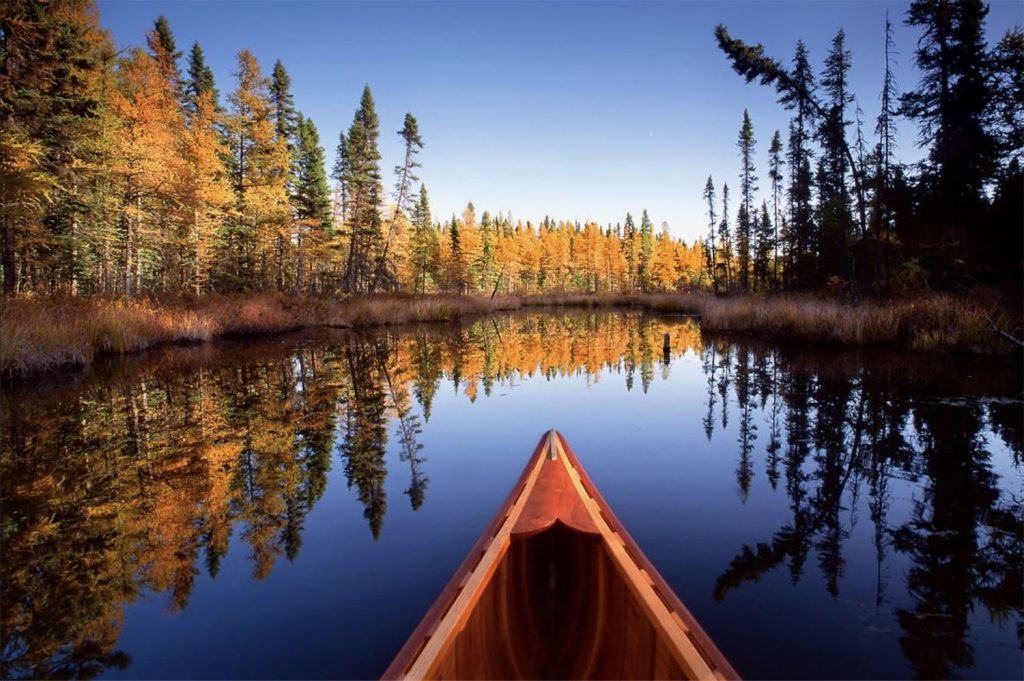By Katherine Tamburrano, Alliance Intern from University of Texas at Austin ‘27
The Boundary Waters Canoe Area Wilderness and surrounding watershed is the home for numerous tribes and a vibrant tourist economy, with more than 1,000 lakes and unspoiled forests containing 20% of all the freshwater in the entire National Forest System. It is the most-visited National Wilderness Area.
This magnificent treasure is also home to hundreds of species, including wolves, moose, loons, lynx and walleye. It offers superb camping, fishing, canoeing and hiking for every American to enjoy. Its waters also flow through Tribal reservations where wild rice has long been harvested as an essential traditional food source.
The Boundary Waters is an engine that powers Northeastern Minnesota’s outdoor recreation economy, which sustains 17,000 jobs and over $1 billion in sales every year, according to Earthjustice.
But it’s also home to precious metals like nickel and copper that Minnesota and the Federal Government have protected from highly toxic mining that would likely contaminate the pristine waters. In 2022 the Biden Administration enacted a protective measure that withdrew lands from under mining leases and placed 20-year mining bans over them.
Economic studies show that protecting the Boundary Waters would produce far better outcomes for job creation and generated income than opening the area to copper mining, according to Earthjustice.
However, the Trump Administration is trying to remove these protections of the Superior National Forest Rainy River Watershed that are the headwaters for the Boundary Waters Wilderness Area. This would open the door to Chilean mining giant Antofagasta to build another one of its hazardous mines, which have been continually cited around the world for violating environmental policies.
Despite Antofagasta’s horrible track record, the US Department of the Interior is seeking to give it exactly what it wants – to build the Twin Metals copper-nickel mine, which would likely permanently pollute this irreplaceable national crown jewel.
Sadly, Trump’s Deputy Secretary of the Interior Kate McGregor said in a July 2025 tweet: “Withdrawing the Biden Administration’s misinterpretation of the law…will unlock significant quantities of metals vital to meeting Energy Dominance goals.”
This proposed lifting of protections would allow Twin Metals to begin a copper sulfide mine that will likely release toxic pollutants that will enter the rivers and streams flowing into the Boundary Waters. This will contaminate drinking water aquifers and wildlife habitat. The hazardous chemicals from the copper mine will persist in the area long after the mine closes, making it nearly impossible to clean up in the future.
Not only is the pollution affecting Boundary Waters tourism and wildlife, but also the land, water, health and wellbeing of First Nations People. The Ojibwe Tribes harvest wild rice, fish and hunt in the Boundary Waters and its connected tributaries.
It’s been an integral part of their lives for centuries. Not only would the copper mine pollution contaminate their drinking water, but it would reduce the amount of their subsistence food, as the toxic metals harm the wild rice and the wildlife and fish that are an important part of their diet.
“We know that the waterways are connected,” says Chippewa elder Ricky DeFoe, “It’s like in the human body all the veins are connected, so it is with the waterways.” Already one out of every ten babies living in the Lake Superior Basin have unsafe levels of mercury in their bodies largely due to pollution from iron mining.
Boundary Waters outfitters, environmentalists and Native Americans have joined together to protest against the mining proposal. One would think that the combined voices of businesses and Tribal leaders would affect policy makers. However, Tribal concerns about the mining harming their way of life have been met with retribution from local politicians supporting boycotts of Native businesses in order to silence them.
The mining companies have undue influence over local politicians, who speak about the Twin Metals mine being a source of economic development and jobs, although it would only employ a small number of workers. Sadly, this is yet another example of both business and government trampling on the rights and preservation of Native American culture.
Please join the Alliance in sending this Earthjustice letter asking the Department of the Interior to oppose the proposed Twin Metals copper mine. We need to protect the rights of Indigenous people and assure a thriving local eco-tourism economy.

